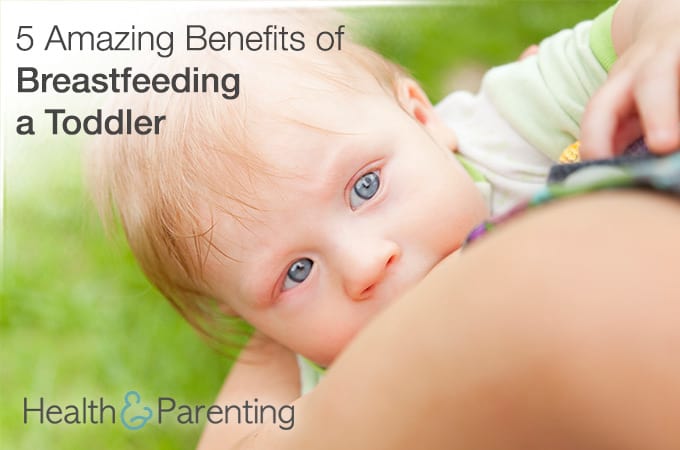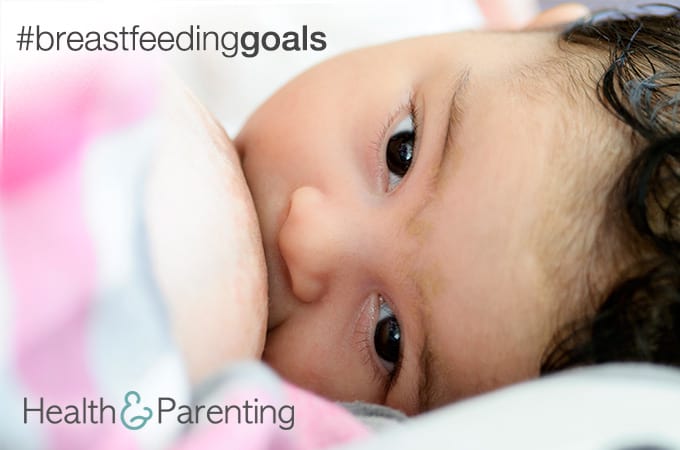If you’re still breastfeeding, you may be wondering when you’re going to stop. Many moms start their breastfeeding journey with an arbitrary end date in mind, often around the six months or one year mark. But what happens when that end date comes and goes and your baby still seems more than happy to keep breastfeeding? Extended breastfeeding (breastfeeding for over twelve months) offers many benefits to both mom and toddler. Here are just some of the amazing benefits of breastfeeding a toddler:
- Nutrition
Your toddler will still be getting plenty of nutritional value from breast milk long into the second year. Your milk doesn’t become nutritionally lacking as soon as that first birthday candle is blown out, instead it continues to offer your child plenty of nutrition. When you have been breastfeeding for over a year, your breast milk contains higher levels of fat and energy content, making it the perfect fuel for your growing toddler.
- Comfort
Breastfeeding isn’t just about nutrition, it is also a vital source of support for many breastfed babies. Bumped heads, scary dreams and poorly tummies can all be breastfed away thanks to the comfort provided by this closeness. If you continue breastfeeding, you’ll continue to be able to use this as your go-to whenever your child needs comforting. It’s lazy and easy and lovely – what more could you want?
- Connection
Now that your baby is getting older, you may be spending more time apart. Perhaps you are increasing your hours at the office, heading back to work or picking up your social life again. Whatever you’re doing, breastfeeding can provide you with the perfect way to reconnect with your toddler after some time apart. If you’re still feeding in the night, it also provides you with a great opportunity for nighttime connection. As your toddler grows more independent, you may at times feel somewhat disconnected from her, but breastfeeding gives you a foolproof way to reconnect.
- Immunity
Your child still has an immature immune system and this leaves her at an increased risk of catching colds, viruses and tummy bugs. Breastfeeding will continue to offer your child a boost of antibodies and immunity from your own immune system.
- Food
There are few things more stressful than having a poorly toddler. When you have a poorly toddler, it’s worrying to see them lose weight when they’re off their food. A breastfed toddler will probably continue to breastfeed throughout an illness, even when she doesn’t want to eat solid food. This can give you some peace of mind that your child is getting at least some nutrition to help her stay strong and fight the infection.
Are you planning to continue breastfeeding into toddlerhood?
Written by Fiona (@Fiona_Peacock), mother, writer and lover of all things baby related.
This information is not intended to replace the advice of a trained medical doctor. Health & Parenting Ltd disclaims any liability for the decisions you make based on this information, which is provided to you on a general information basis only and not as a substitute for personalized medical advice. All contents copyright © Health & Parenting Ltd 2016. All rights reserved.











